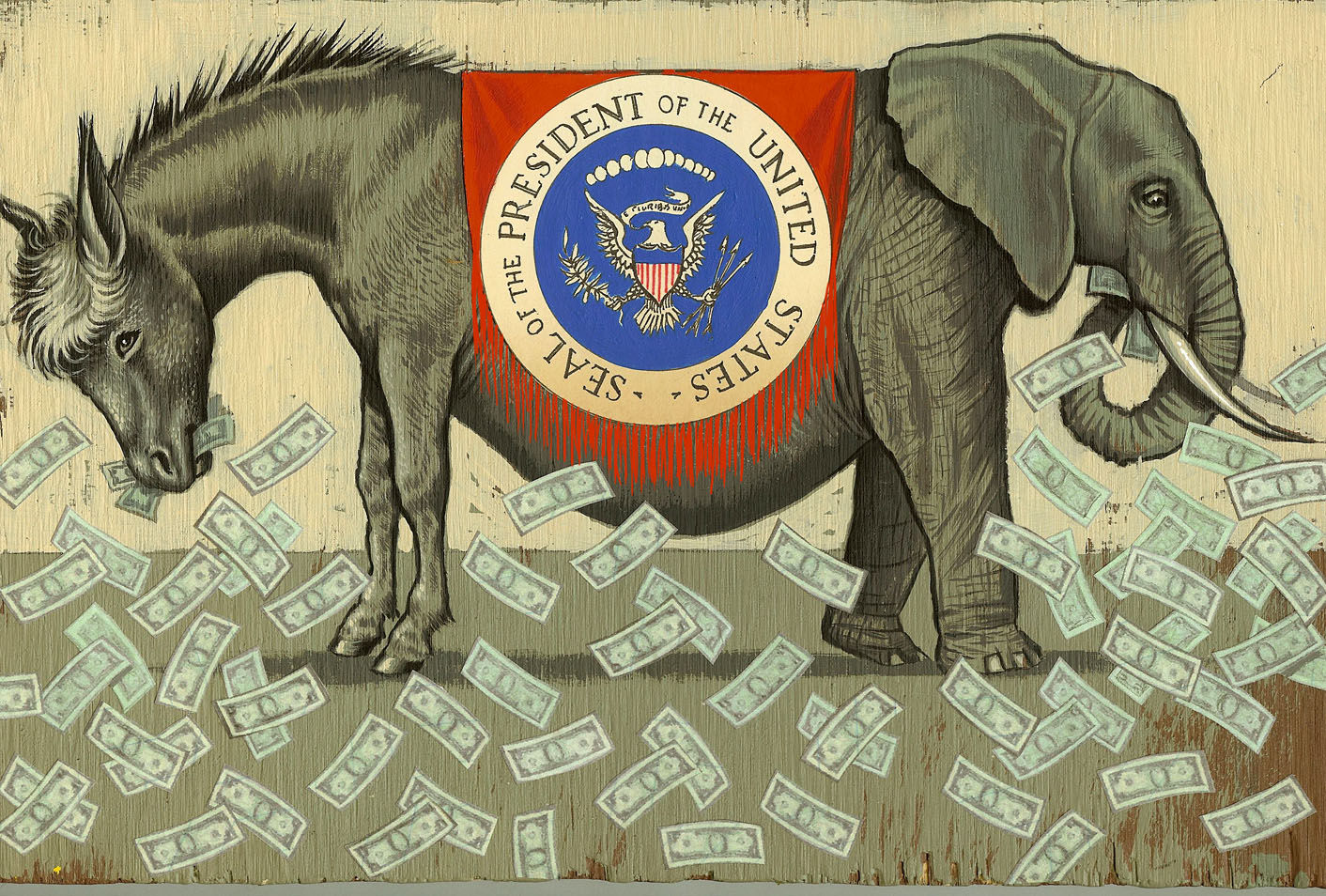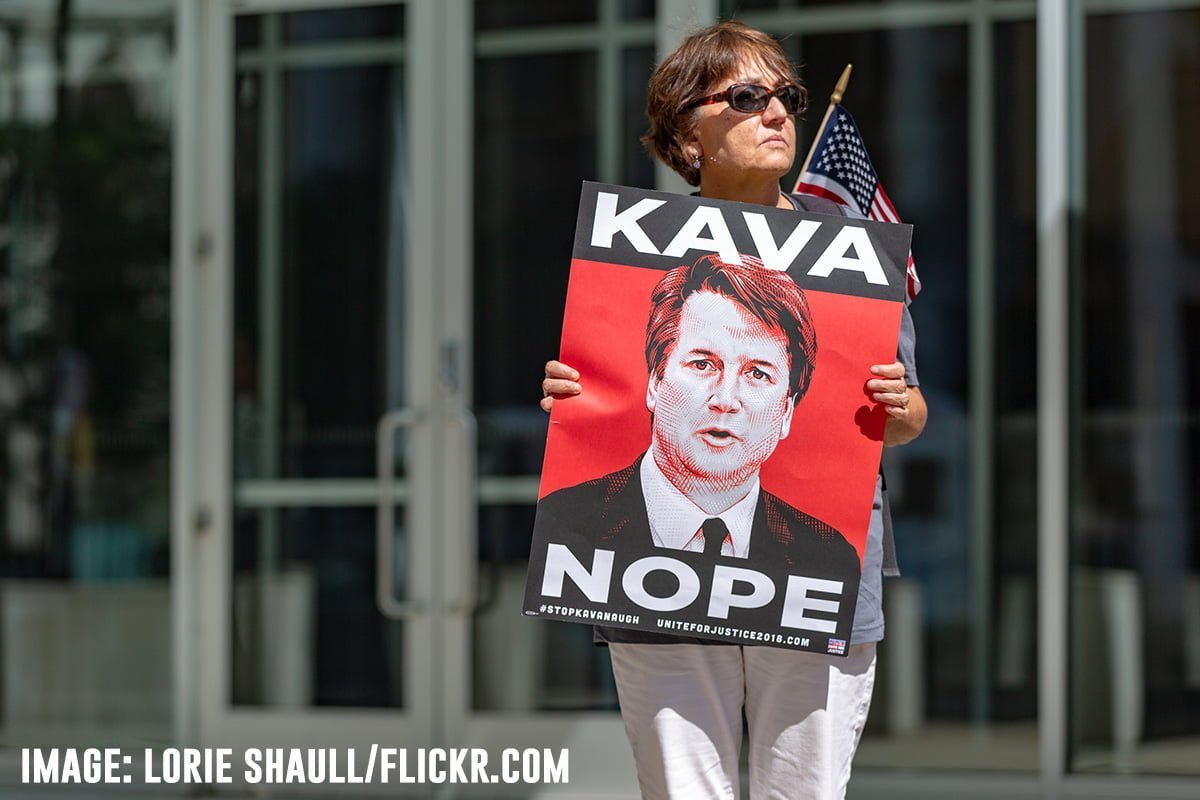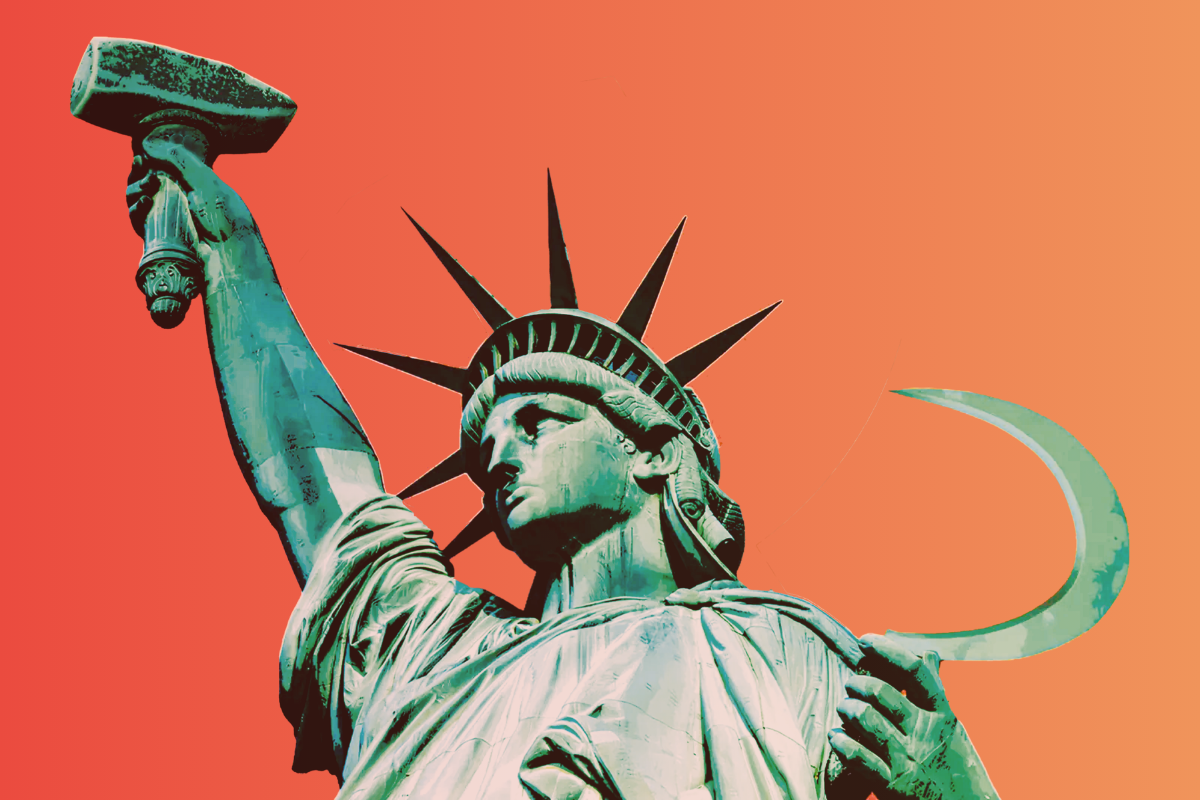John Peterson from Socialist Revolution in the USA examines the upcoming midterm elections and the battle that has taken place over the nomination of Brett Kavanaugh to the Supreme Court.
The US midterms are upon us and the 2020 elections just around the corner. Seen by many as a referendum on Trump and a preview of the next presidential elections, 2018 will also be a referendum on the political system as a whole.
While it’s possible there will be an anti-Trump bump, tens of millions will simply sit it out, instinctively understanding that whether the Democrats or Republicans control Congress, no fundamental change will be forthcoming.
In 2016, a plurality of voters—nearly 45 percent—opted for “none-of-the-above” abstentionism, while Trump and Clinton received just over 26 percent each. Midterms typically see an even lower turnout. With a lack of genuine options comes a lack of genuine enthusiasm. Voting ‘against’ something or someone can only get you so far.
The intensifying polarisation of US society is, in the final analysis, a function of the irreconcilable antagonism between the workers and the capitalists. But given the country’s uniquely contorted history, things are not as straightforward as “the working class on one side, the capitalist class on the other”.
As an example, American political life is currently refracted through the distorted prism of the two major parties, both of which are unapologetic champions of capitalism. By definition, this means they defend interests that are antithetical to the interests of the workers. But as they are a numerical minority of the population, they must lean on the working-class majority to win elections. With little of substance to offer, the nominal differences between them are channeled into the froth of the so-called culture wars, which leads to even greater convolutions.
Clarifying this muddling of class lines will necessarily be a messy and prolonged process, especially in the absence of a mass working-class political party. But given the above, it is hard to comprehend how anyone could deny the colossal potential for a mass working-class political alternative.
The willingness of US workers to mobilise and take on the status quo was on full display during Sanders’s campaign and again during the recent wave of teachers’ strikes. Millions of Americans, voters and non-voters alike, would enthusiastically join a party that was truly their own, one that boldly put forward socialist policies that challenged the right of the capitalists and their parties to rule. And yet, incredibly, the main ‘strategy’ of the socialist left is to cling in one form or another to the Democrats.
No illusions in the Democrats
 Take the example of self-described socialist and DSA member, Alexandra Ocasio-Cortez. Her upset win over a longstanding establishment Democrat fed the illusion that the Democrats could somehow be pushed to the left. When Socialist Revolution pointed out that, far from pushing the Democrats to the left, Ocasio-Cortez would be quickly sucked to the right, we were called sectarians, pessimists, dogmatists, and worse. But real friends tell each other truth—no matter how unpalatable. Now she has given an across-the-board endorsement of all Democratic Party candidates, including the arch-reactionary governor of New York, Andrew Cuomo.
Take the example of self-described socialist and DSA member, Alexandra Ocasio-Cortez. Her upset win over a longstanding establishment Democrat fed the illusion that the Democrats could somehow be pushed to the left. When Socialist Revolution pointed out that, far from pushing the Democrats to the left, Ocasio-Cortez would be quickly sucked to the right, we were called sectarians, pessimists, dogmatists, and worse. But real friends tell each other truth—no matter how unpalatable. Now she has given an across-the-board endorsement of all Democratic Party candidates, including the arch-reactionary governor of New York, Andrew Cuomo.
There is no denying that Ocasio-Cortez’s win generated interest in socialism, but we have to ask: what kind of win and what kind of socialism? Are socialists in this merely to ‘win’ isolated bourgeois-democratic elections that lead inevitably to disappointment when nothing significant changes? Or does winning mean doing away with capitalism altogether to ensure a better life for all and the survival of our species in the face of global climate change?
As for socialism, Marxists understand it as the transitional period bridging capitalism and the classless, moneyless, stateless society known as communism. It is the period ushered in once the workers have won political power and begin to move against private ownership of the means of production. It is not merely a few reversible reforms within the limits of capitalism. While revolutionary socialists fight for reforms within the system, we do so as part of the broader struggle to overthrow it once and for all. Content is more important than form. Good personal intentions and calling oneself a socialist are not enough.
The Democratic Party has the weight of capitalism behind it. To expect that individuals can somehow resist the gravity of such a powerful force without mass forces of their own to back them up and hold them accountable is naïve at best. Running on the Democratic ballot line means you are beholden to the Democratic Party. It’s that simple.
People were enthusiastic about Sanders and Ocasio-Cortez, not because they were running as Democrats, but because they called themselves socialists and challenged the status quo. What fired them up was the prospect of universal healthcare, free education, and higher wages. But the Democrats can’t deliver in a meaningful way on any of this—and even less in an epoch of austerity, cuts, and counter-reforms.
The task of socialists is to break the grip that party has over the minds of millions of workers who fall into its trap for lack of an alternative—not to foment those illusions. Ultimately, the only party and candidates we can truly trust are our own. If that party doesn’t yet exist, then it’s up to us to fight for it within the movement—with a sense of urgency.
An example of what is possible can be seen in the recent election results in Québec. On the basis of a progressive programme that included raising the minimum wage, guaranteeing paid sick leave, massively expanding public transportation, lowering the cost of medicine and internet access, and more, Québec Solidaire (QS) more than doubled their previous result and won over 16 percent of the vote. With the collapse of the liberals and nationalists, and the victory of the hard-right Coalition Avenir Québec (CAQ), the stage is set for greater polarisation and class struggle, and QS is in a position to galvanise the fightback in the province and to win future elections—if it mobilises the workers and youth behind a programme that takes capitalism head-on.
The conclusion drawn by liberals and reformists whenever the far-right wins is that more “moderation” is needed. But the real lesson is that boldness in challenging austerity and capitalism enthuses workers to go to the polls and onto the streets.

Kavanaugh: as ugly as the system behind him
As the US midterms approach, the economy is still technically strong and much of Trump’s core base is still behind him. As a result, the Republicans may well maintain control of Congress and the much-hyped “blue wave” may falter. But the outcome is not yet determined, and in a system balanced on a razor’s edge, even small events can tip the balance one way or another. The economy could very well nosedive at any time, and into the pool of the unknown was dropped the boulder of the Kavanaugh-Ford hearings.
The liberals are in a tizzy over the prospect of filling the seat left open by Anthony Kennedy with an arch-reactionary like Brett Kavanaugh. Make no mistake—Kavanaugh is indeed a privileged, entitled, and vomit-inducing member of the establishment. He is a sworn enemy of the working class. But let us not forget: the entire Supreme Court is the enemy of the working class.
This is the same court that ruled that Dred Scott was not a “person” in the eyes of the Constitution and that “separate but equal” segregation was A-OK. It ruled that the forced sterilisation of those with intellectual disabilities was constitutional and that Japanese-Americans could be interned indefinitely in camps. It is the same unelected-for-life body that decides US elections, upholds the purging of electoral roles, and protects the First Amendment rights and personhood of corporations.
Despite the liberal effort to canonise Ruth Bader Ginsburg, the Supreme Court is not composed of demigods but of real people with very real interests—class interests. It is a reactionary body through and through, one of the three wings of government designed to keep the masses in check. Its purview flows from a generous interpretation of the equally reactionary US Constitution, a document drafted by and for a minority of wealthy property owners.
The Supreme Court is alleged to stand above politics, ‘impartially’ and ‘independently’ ‘interpreting’ the law. In reality, much like the British monarchy, it is one of the last lines of defense in upholding bourgeois rule and is not at all ‘independent’ of class. When pressure from below grows on certain issues—such as basic civil rights for black Americans or gay marriage—it is flexible enough to make certain adjustments, but always within limits that are safe for the continuation of the system.
There is an enormous amount of inertia behind the public’s acceptance of the Supreme Court as the ‘final say’ in judicial matters. It is one of the few establishment institutions that still has fairly broad credibility. Maintaining its integrity and sanctity are paramount.
This is why Republican Jeff Flake laments that hearings are “tearing the country apart” and the liberal media is concerned about the “unwanted scrutiny” all of this has brought to the court. It is “unwanted” because, if the farce of impartiality is exposed, the entire legal basis for capitalist rule will be in jeopardy. The Court and the Constitution must appear to rule for all while actually ruling for the few, a magic act hard to pull off in the best of times, let alone in times of intensifying crisis.
No confidence in the establishment
 Confidence in every pillar of the establishment is disintegrating. Barack Obama partially and temporarily succeeded in bringing a veneer of dignity to an undignified office—the seat of power of the world’s most rapacious ruling class. He lulled people into a sense of complacence, into thinking that after the 2008 crisis, the worst had come and gone. But the worst was far from over and there is plenty more to come—and Obama, Clinton, Sanders, and the rest of the Democratic Party paved the way for it.
Confidence in every pillar of the establishment is disintegrating. Barack Obama partially and temporarily succeeded in bringing a veneer of dignity to an undignified office—the seat of power of the world’s most rapacious ruling class. He lulled people into a sense of complacence, into thinking that after the 2008 crisis, the worst had come and gone. But the worst was far from over and there is plenty more to come—and Obama, Clinton, Sanders, and the rest of the Democratic Party paved the way for it.
As Hegel explained, necessity expresses itself through accident, and like Trump’s election, the Kavanaugh debacle expresses a deeper truth. That a sexist, racist, slumlord, tax-evading, narcissist, and congenital liar is the president of the United States is not an anomaly but a faithful reflection of the system’s true values and character. That an abhorrent creature like Brett Kavanaugh was his top pick to sit on the most powerful judicial body of the oldest capitalist republic on earth is likewise not an aberration.
The system is tapped out and has nothing left to offer but perpetual crisis and chaos. Like both major parties that defend it, it needs to be hung out to dry.
Intro image by Lorie Shaull / CC-by-SA-2.0






